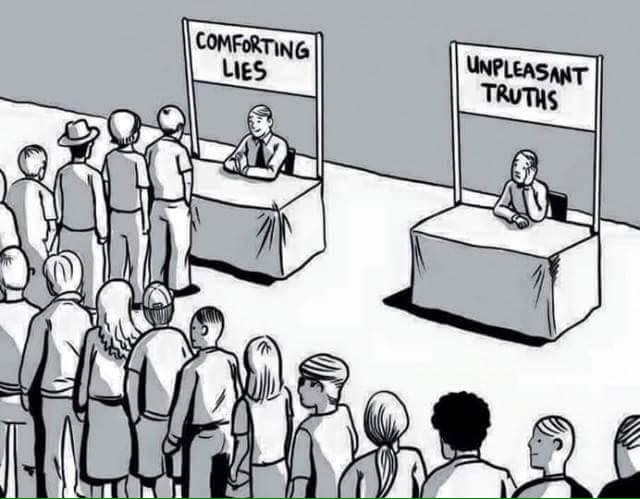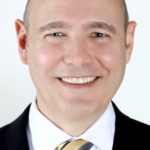The missing component to wealth: Defense

Today, I'm publishing a guest post from Robert Bockel, who is active on Twitter and believes that many of us are missing a critical component to financial independence and early retirement. We talk about the fun stuff...the cool stuff. Offense. But, that's only one side of the coin.
Robert, take it away!

The offense vs defense conversation I believe is an important one. Offense is more fun to talk about and generally more exciting. And because of this, financial advisors, writers, bloggers, etc tell people what they want to hear in order to drive sales, advertising, and/or traffic. People are being lulled into a false sense of security. They are putting these mathematical, linear, theoretical plans together, throwing them in a drawer, and living their lives as if all is good.
Inevitably, practical reality rears its head, unexpected things happen, and the “plan” falls apart. People then wake up in their fifties and sixties realizing that they are in serious trouble. To make matters worse, they have lost a large portion of their most perishable asset – TIME.
If you look at the slope of an exponential curve, 10-15 years is not enough time to truly grow your wealth. Old adages like “defense wins championships” exist for a reason. Defense, as well as offense, are important.
In most cases, investments (offense) are the foundation of the financial “plan”. Having an entity with a volatile foundation has inherent potential issues. Investments, while important, are unpredictable, fluctuate, and are frequently at the mercy of forces well beyond our control. These “plans” focus on one aspect as a determinant for success - internal rate of return. PERIOD.
Defense, designed from factors that can erode our wealth, impacts our rate of return.
When these factors, like market volatility, taxes, law changes, inflation, fees/costs, health/sickness/disability, lawsuits, technology changes, planned obsolescence, death (premature & living longer than expected) are included, this equals our external rate of return. These factors become even more pernicious at retirement where we no longer have a steady paycheck coming in to help combat them. We are even more at their mercy at this time. Our nest egg now has to be converted into our paycheck. If our nest egg is damaged – our paycheck is damaged.
Here is an example:
Let’s take a wealthy 35-year-old who makes $200,000/yr. He saves $30,000/yr into a generic investment account for 30 years. He gets an 11.6% rate of return (this is what the S&P 500 has averaged over the past 30 years). After 30 years his account value would be $7,478,379. However, we don’t get 11.6% each and every year. If we include the actual (fluctuating) rates of returns (which still average 11.6%) our real account balance would be $4,715,723. Roughly 1/3 less! A 1% management fee knocks the balance down to $3,781,693. Factor in a 25% tax rate and we have $2,075,319 or an actual rate of return of 4.95%. Huge difference!
However, consumers are sold on the $7,478,389….and we want to believe it. To take it a step further – the now 65-year-old has a nest egg of $2,075,319 to live off of. If he could get a safe 4% rate of return (you certainly can’t today) and wanted to live on the same $200,000 as he did as a 35-year-old, a 3% inflation would erode his spending power to roughly half. He would go broke at age 76.
When it comes to offense there are many ways to build wealth:
- Equity (stock) based investments through individual securities
- Mutual funds
- ETFs
- Active management
- Passive index investments
- Bonds and other types of debt instruments
- Real estate
- Investing in collectibles
- Commodities
- Starting a business of some type.
All of these are great and certainly work. They also have their unique attributes and risk characteristics. I would encourage anyone to utilize any of these instruments that they were comfortable getting involved with…. In fact, I would most likely help in any way that I could.
The question becomes what are we trying to accomplish here? Is the goal to just go for the most money possible - as if it were a game? If that were the case we would just choose the investment we thought would give us the best return and put every red cent we had into it. But we don’t do that because we rightly have a fear of loss. We want to have as much money as possible in the end but we know we need to have assets in place when it is all said and done. We can't afford to have little (or nothing!) left as we age.
Today people talk about retirement as if it were optional. It’s not. We age. Our bodies and minds decay. We can’t work forever. We need a nest egg in the future so we have some dough after we make the transition from people at work to money at work. Because of this, we diversify (a great industry buzzword) our wealth. We know that this may very well hurt our overall rate of return; but, we can't afford to have nothing there if a market sector collapses.
So the goal is not to have the most money possible. The goal is to grow our money, hopefully well beyond the rate of inflation so we can maintain our spending power with the caveat of not losing too much along the way. If this is the case, using a specific rate of return or an index as a benchmark may not always be the best determinant of success. There are just too many variables in play to make that assumption.
Now, defense is a different story. In many cases, we don’t have countless options like we do when it comes to playing offense with our saved wealth.
For instance, you’re a doctor and you want to manage the risk of making a professional mistake that causes a severe loss in which you would be liable. The first thing you would do to mitigate this is purchase medical malpractice insurance. In most cases, in fact, you are required to purchase this in order to practice. If you are insuring against loss when behind the wheel of a car, you would buy car insurance and possibly additional liability insurance. Also, property insurance, disability insurance, medical insurance, long term care insurance, life insurance, etc.
You might coordinate these products with other asset protection strategies with your attorney for a proper legal structure to protect you as much as possible from various potential lawsuits. Also, we need liquidity for defense if we ever need money quickly for unforeseen circumstances. Usually, this limits us to certain accounts that are very safe and we can have 100% access to the money at any time. Rate of return may not actually be the biggest determinant of success. The biggest factor may be how insulated we are from all of the known and unknown eroding factors.
The eroding factors are the silent killers like high blood pressure or high cholesterol. We ignore them at our own peril. One of the most commonly discussed eroding factors in investing is fees. A dollar lost is a dollar lost. It doesn’t matter if it happens through fees, taxes, volatility, inflation or any other means. Saving hundreds of thousands of dollars on fees certainly is great, but not if you are losing millions due to stock market volatility. We have a tendency to overly focus one area of erosion at the expense of all others. We need a moat around our castle to protect and defend us from as many of the negative consequences as possible.
Offense and defense need to be properly coordinated together as they are both of crucial importance. These are not segregated financial decisions. They work hand in hand. Ideally, proper defense makes our offense stronger. The big difference between the two is that we have defense properly set up before any event happens. We do not get the opportunity to simply "wing" defense after a peril occurs.
For this reason, it is understandable to have a defense first strategy. Defense wins championships. If structured properly, this can be done without sacrificing wealth.

Connect with Robert Bockel here: Twitter, Facebook and LinkedIn